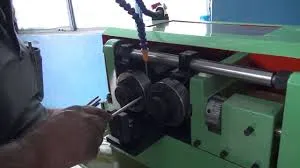
-
 Afrikaans
Afrikaans -
 Albanian
Albanian -
 Amharic
Amharic -
 Arabic
Arabic -
 Armenian
Armenian -
 Azerbaijani
Azerbaijani -
 Basque
Basque -
 Belarusian
Belarusian -
 Bengali
Bengali -
 Bosnian
Bosnian -
 Bulgarian
Bulgarian -
 Catalan
Catalan -
 Cebuano
Cebuano -
 Corsican
Corsican -
 Croatian
Croatian -
 Czech
Czech -
 Danish
Danish -
 Dutch
Dutch -
 English
English -
 Esperanto
Esperanto -
 Estonian
Estonian -
 Finnish
Finnish -
 French
French -
 Frisian
Frisian -
 Galician
Galician -
 Georgian
Georgian -
 German
German -
 Greek
Greek -
 Gujarati
Gujarati -
 Haitian Creole
Haitian Creole -
 hausa
hausa -
 hawaiian
hawaiian -
 Hebrew
Hebrew -
 Hindi
Hindi -
 Miao
Miao -
 Hungarian
Hungarian -
 Icelandic
Icelandic -
 igbo
igbo -
 Indonesian
Indonesian -
 irish
irish -
 Italian
Italian -
 Japanese
Japanese -
 Javanese
Javanese -
 Kannada
Kannada -
 kazakh
kazakh -
 Khmer
Khmer -
 Rwandese
Rwandese -
 Korean
Korean -
 Kurdish
Kurdish -
 Kyrgyz
Kyrgyz -
 Lao
Lao -
 Latin
Latin -
 Latvian
Latvian -
 Lithuanian
Lithuanian -
 Luxembourgish
Luxembourgish -
 Macedonian
Macedonian -
 Malgashi
Malgashi -
 Malay
Malay -
 Malayalam
Malayalam -
 Maltese
Maltese -
 Maori
Maori -
 Marathi
Marathi -
 Mongolian
Mongolian -
 Myanmar
Myanmar -
 Nepali
Nepali -
 Norwegian
Norwegian -
 Norwegian
Norwegian -
 Occitan
Occitan -
 Pashto
Pashto -
 Persian
Persian -
 Polish
Polish -
 Portuguese
Portuguese -
 Punjabi
Punjabi -
 Romanian
Romanian -
 Russian
Russian -
 Samoan
Samoan -
 Scottish Gaelic
Scottish Gaelic -
 Serbian
Serbian -
 Sesotho
Sesotho -
 Shona
Shona -
 Sindhi
Sindhi -
 Sinhala
Sinhala -
 Slovak
Slovak -
 Slovenian
Slovenian -
 Somali
Somali -
 Spanish
Spanish -
 Sundanese
Sundanese -
 Swahili
Swahili -
 Swedish
Swedish -
 Tagalog
Tagalog -
 Tajik
Tajik -
 Tamil
Tamil -
 Tatar
Tatar -
 Telugu
Telugu -
 Thai
Thai -
 Turkish
Turkish -
 Turkmen
Turkmen -
 Ukrainian
Ukrainian -
 Urdu
Urdu -
 Uighur
Uighur -
 Uzbek
Uzbek -
 Vietnamese
Vietnamese -
 Welsh
Welsh -
 Bantu
Bantu -
 Yiddish
Yiddish -
 Yoruba
Yoruba -
 Zulu
Zulu
Updated Pricing for Thread Rolling Machines and Equipment Catalog
Understanding Thread Rolling Machines Price List and Factors Influencing Costs
Thread rolling machines play a crucial role in the manufacturing process, particularly in the production of screws, bolts, and other threaded fasteners. These machines are designed to form threads on workpieces through a process that involves the rolling of material between two dies. While the functionality of thread rolling machines is vital for efficiency and quality in production, understanding their pricing is equally important for manufacturers and buyers. In this article, we will delve into the thread rolling machine price list, as well as the factors influencing these costs.
Overview of Thread Rolling Machines
Thread rolling machines come in various types, including flat die, cylindrical die, and planetary thread rolling machines, each designed for specific applications. Flat die machines are ideal for small runs and lightweight materials, while cylindrical die machines are better suited for larger production volumes. Planetary machines, on the other hand, offer high precision and efficient workflow, making them popular in industries that demand consistent quality.
Price Range of Thread Rolling Machines
The price of thread rolling machines can vary significantly based on several factors, including the type of machine, brand, capabilities, and additional features. On average, small flat die machines can start from around $5,000 to $15,000, while more advanced cylindrical machines may range from $20,000 to $50,000. High-end planetary thread rolling machines, which are equipped with advanced technologies for precision work, can cost anywhere from $50,000 to upwards of $150,000.
It is essential to note that these prices can further fluctuate based on market demand, the specific industry requirements, and geographical location. For instance, machines installed in countries with high production costs may carry a premium price tag compared to those priced in regions with lower operational costs.
Factors Influencing the Price of Thread Rolling Machines
thread rolling machine price list product

1. Machine Type and Specifications Different types of thread rolling machines come with varying price points based on their design and capabilities. Machines with higher speeds, greater flexibility, and the ability to handle different materials generally command higher prices.
2. Brand Reputation Well-established brands that are known for reliability and precision may charge a premium for their machines. However, investing in a reputable brand can often lead to better durability and lower maintenance costs in the long run.
3. Technological Features The inclusion of advanced technologies such as automated setups, digital displays, and error detection systems can significantly increase a machine's price. These features often enhance productivity and reduce the chances of human error during operation.
4. Customization Needs Buyers requiring specific modifications to their machines to meet unique production needs may encounter higher costs. Custom features can range from size adjustments to specialized tooling systems that fit the specific threaded components being produced.
5. Machine Condition The state of the machine—new or used—also plays a pivotal role in determining the price. New machines, while more expensive, come with warranties and the latest technology, while used machines may provide significant savings but come with risks related to wear and tear.
6. Supplier and After-Sale Support The level of support offered by suppliers can also influence the total cost of ownership. Quality after-sales service, including installation, training, and maintenance, can add to the initial expense but ultimately provide better value.
Conclusion
Investing in a thread rolling machine is a significant decision for manufacturers, influenced by various factors from the type of machine to brand reputation and technological capabilities. Understanding the price range and the elements that affect costs can help buyers make informed decisions. By choosing the right machine tailored to specific production needs, manufacturers can enhance efficiency, improve the quality of their output, and ensure a favorable return on investment in their manufacturing processes. It is always advisable to compare different suppliers and evaluate long-term costs associated with machine ownership before making a purchase.
